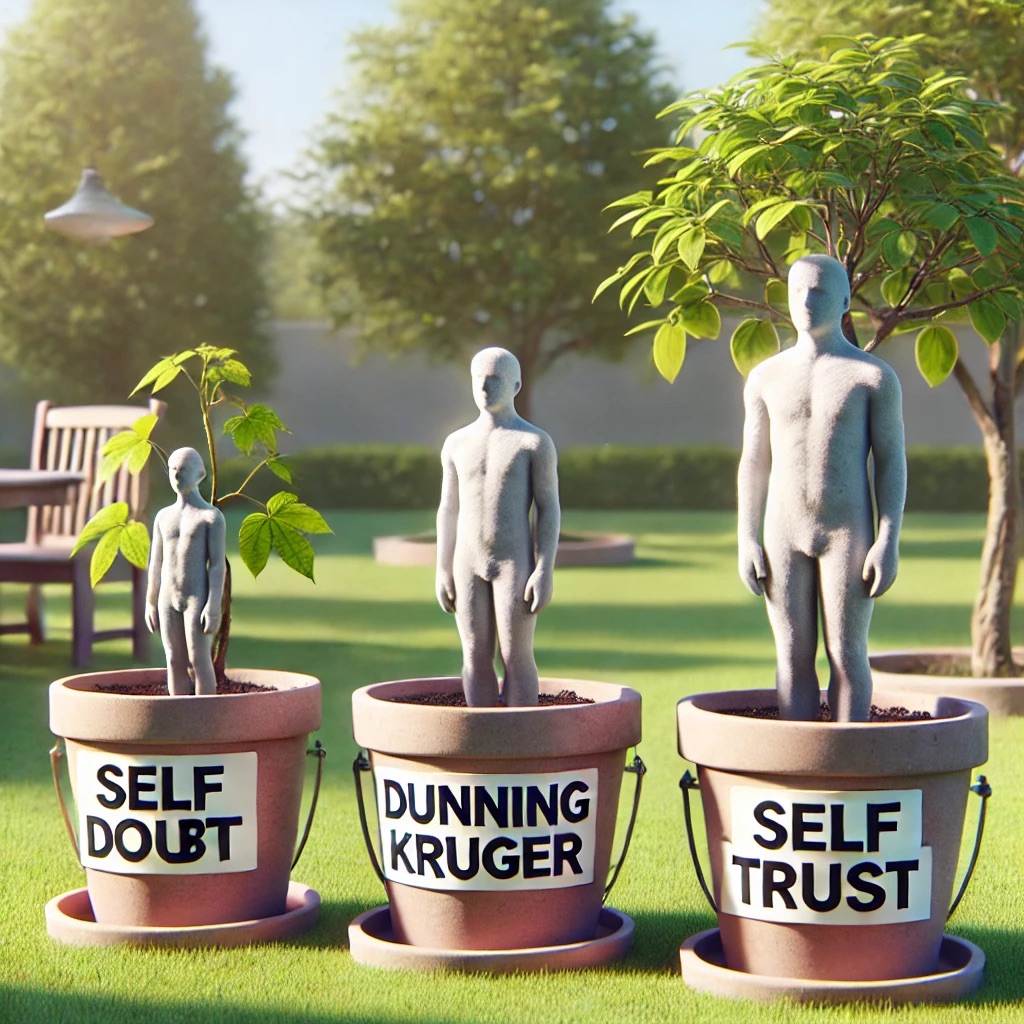
Picture this. You’re standing at the edge of a vast ocean, surrounded by swirling currents of change and uncertainty. The waves crash against the shore, and you can’t help but feel a sense of unease creeping in. In moments like these, where the future feels uncertain and the present tumultuous, finding stability can seem like an impossible task.
Sure, in a world that often feels like it’s spinning faster than we can keep up, it’s easy to get caught up in the whirlwind of negativity and fear.
But what if I told you that there’s a beacon of hope shining brightly amidst the chaos? It’s called gratitude, and as a leading executive transformation coach, I’m here to show you just how powerful it can be.
Yes, while the hustle & bustle of daily life goes on, gratitude gives us a much-needed respite—a chance to pause, reflect, and find joy in the simple moments. Let’s try to understand how cultivating gratitude can help you immensely on the long run.
Connection between Gratitude & Happiness
I recently came across a quote in the Huffington Post that really struck a chord with me regarding this: “If you’ve forgotten the language of gratitude, then you’ll never be on speaking terms with happiness.” In my mind, these words definitely serve as a powerful reminder of the profound connection between gratitude & happiness—a connection that has been scientifically proven time and time again.
Let me start with a significant example too: A study, led by Robert Emmons, PhD, that was set out to explore just how impactful gratitude can be on our overall health. The research for the study went over the course of 10 weeks, and participants were asked to journal about different aspects of their lives. The results were however, astounding. Those who focused on gratitude reported feeling a whopping 25% happier than those who went through daily hassles or remained neutral.
So, in this article, we’re going to dive deep into the science behind gratitude, unpack the findings of this Dr. Emmons’ study as well, and explore why cultivating gratitude is not just a nice-to-have, but a must-have, especially when life throws us curveballs. So, grab a cup of tea, cosy up, and let’s go on this journey together as we discover the transformative power of gratitude and how it can lead us to a happier, more fulfilling life in the long run.
The Neuroscience of Gratitude
As we try to go into the concept that is gratitude, it’s essential to understand the science behind its profound impact on our mental health. The human brain is a marvel of complexity for sure, and studies have shown that practising gratitude can actually rewire our neural pathways, leading to lasting changes in how we perceive the world around us.
The previously mentioned quote from the Huffington Post article resonates deeply here again: “If you’ve forgotten the language of gratitude, then you’ll never be on speaking terms with happiness.” Let’s talk about this statement somewhat more, shall we?
This sentiment isn’t just poetic—it’s backed by neuroscience too. When we express gratitude, our brains release dopamine and serotonin, often referred to as the “feel-good” neurotransmitters. These chemicals not only make us feel happier in the moment but also contribute to long-term feelings of contentment and euphoria.
Also, let’s talk about Dr. Emmon’s famous study a little more, the study we briefly mentioned earlier. What exactly does gratitude journaling entail? Well, it’s simple, really.
Each day, participants in Dr. Emmons’ study were asked to jot down five things they were grateful for, whether big or small. From a beautiful sunrise to a kind gesture from a stranger, the possibilities were endless. By consciously shifting their focus from negativity to gratitude, participants began to rewire their brains, paving the way for a more positive outlook on life.
So, what does this mean for us? It means that gratitude isn’t just a fleeting emotion—it’s a skill that can be cultivated and honed over time. By incorporating gratitude practices into our daily lives, we have the power to rewire our brains for happiness, resilience, and overall quality of life.
The Impact of Practicing Gratitude
Now that we understand the neuroscience behind gratitude, let’s explore the real-world impact of incorporating gratitude practices into our daily lives. Dr. Robert Emmons’ study not only shed light on the neurological benefits of gratitude but also revealed tangible improvements in participants’ overall sense of worth too.
Group one, tasked with journaling about things they were grateful for, experienced a remarkable transformation in just 10 weeks. By intentionally focusing on the positive aspects of their lives, participants reported feeling happier, more content, and more optimistic about the future. It’s as if gratitude served as a shield, protecting them from the negative effects of stress and uncertainty.
On the other hand, group two, who dwelled on daily hassles and frustrations, saw little to no improvement in their happiness levels. This stark contrast highlights the power of mindset in shaping our experiences. By fixating on the negative aspects of life, we inadvertently amplify our stress and diminish our overall well-being.
But what about the neutral group, you may wonder? Interestingly, even those who remained neutral in their journaling saw some improvement in their happiness levels. This suggests that simply taking the time to reflect on our experiences, regardless of whether they’re positive or negative, can have a beneficial impact on our mental health.
So, what can we glean from these findings? It’s clear that gratitude isn’t just a fleeting emotion—it’s a mindset, a way of life. By cultivating an attitude of gratitude, we can train our brains to seek out the silver linings, even in the midst of adversity. And the best part? It doesn’t take years of practice to see results. In just 10 weeks, participants in Dr. Emmons’ study experienced significant improvements in their happiness levels—a testament to the transformative power of gratitude.
Why Gratitude Matters in Coaching and Personal Transformation
As an executive transformation coach, I’ve had the privilege of witnessing the profound impact that gratitude can have on my clients’ journey toward personal growth and fulfilment. But why is gratitude so crucial in the fields of coaching and personal transformation? Let’s explore.
Connecting gratitude to coaching philosophy
In coaching, gratitude can serve as a foundational element, guiding both the coach and the client towards a more positive and empowering perspective. By acknowledging and appreciating progress, strengths, and opportunities, gratitude becomes a catalyst for growth and development.
Gratitude refers to more than just saying “thank you.” It’s a mindset, an orientation towards recognising & appreciating the positive aspects of life. Research in positive psychology has highlighted numerous benefits of practicing gratitude, including improvements in relationships and increased resilience in the face of challenges.
Amplifying client happiness and resilience through gratitude
Research has also shown that practising gratitude can reduce stress, and improve mental health in the long run. As a coach, I’ve seen firsthand how gratitude empowers my clients to navigate challenges with a sense of optimism and resilience. By encouraging clients to focus on what they’re grateful for, rather than what they lack, coaches can help them shift their perspective and unlock new possibilities for growth and transformation.
Personal transformation through gratitude
Practicing gratitude directs our attention away from past regrets and future anxieties, prompting us to appreciate the present. By recognising and cherishing the goodness in our current circumstances, we nurture a positive mindset. This shift allows us to fully immerse ourselves in the here and now, finding joy in simple pleasures and acknowledging the often-overlooked moments of everyday life.
Gratitude exercises further empower us to see challenges and hardships from a different angle, uncovering silver linings and opportunities for growth as well. Instead of fixating on the negatives, gratitude encourages us to seek out positives, lessons, and unexpected blessings within difficult situations. This shift in mindset equips us with optimism, enabling us to face obstacles with grace and transform personally through adversity.
Strengthening Resilience and Emotional Intelligence
Gratitude practices prompt us to view setbacks as valuable learning opportunities. By cultivating gratitude for the insights gained from tough times, we develop patience. This perspective shift prepares us to handle future challenges with greater ease, seeing them as chances for growth and self-improvement. Gratitude helps us reframe setbacks as stepping stones on our journey rather than barriers to our progress too.
Practical Strategies for Cultivating Gratitude
Now that we understand the importance of gratitude in coaching and personal transformation, let’s dive into some practical strategies for cultivating gratitude in our daily lives. Whether you’re new to gratitude practices or looking to deepen your existing routine, these simple exercises can help you harness the transformative power of gratitude and unlock a happier, more fulfilling life.
Keeping a gratitude journal
One of the most effective ways to cultivate gratitude is by keeping a gratitude journal. Each day, take a few moments to write down three things you’re grateful for. They can be big or small—from a beautiful sunset to a kind word from a friend. By consistently acknowledging the blessings in your life, you’ll train your brain to focus on the positive and cultivate a deeper sense of gratitude.
Practising gratitude in daily routines
Incorporating gratitude into your daily routines can help you stay grounded and present throughout the day. Whether it’s expressing gratitude during your morning meditation, giving thanks before meals, or reflecting on the day’s blessings before bed, find moments throughout your day to pause and appreciate the goodness in your life.
Expressing gratitude to others
One of the most powerful ways to cultivate gratitude is by expressing it to others. Take the time to thank the people in your life who have made a positive impact on you, whether it’s a friend, family member, colleague, or mentor. Not only will this strengthen your relationships, but it will also deepen your own sense of gratitude and appreciation.
Cultivating a gratitude mindset
By consciously choosing to focus on the positive aspects of your life, you can train your brain to see the good in every situation. When faced with challenges or setbacks, ask yourself: What can I be grateful for in this moment? Shifting your perspective in this way can help you find silver linings even in the darkest of times.
Reflecting on the impact of gratitude
Finally, take time to reflect on the impact of gratitude in your life. Notice how practising gratitude makes you feel—physically, emotionally, and mentally. Pay attention to any shifts in your mindset, outlook, or overall sense of well-being. By cultivating awareness of the transformative power of gratitude, you can deepen your practice and continue to reap its benefits for years to come.
Final Words
As we come to the end of our exploration into the transformative power of gratitude, I hope you’ve gained a deeper understanding of why gratitude is not just a fleeting emotion, but a fundamental principle that can guide us through life’s greatest challenges. From the neuroscience behind gratitude to its profound impact on coaching and personal transformation, we’ve uncovered the myriad ways in which gratitude can enrich our lives and lead us to greater happiness and fulfilment.
As an executive transformation coach, I’ve had the privilege of witnessing the transformative power of gratitude in my clients’ lives. From finding balance amidst a demanding career to embracing change with open arms, gratitude has served as a guiding force, empowering my clients to unlock their full potential and live their most fulfilling lives.
Thank you for joining me on this journey into the transformative power of gratitude. May you continue to cultivate gratitude in your own life and inspire others to do the same.





